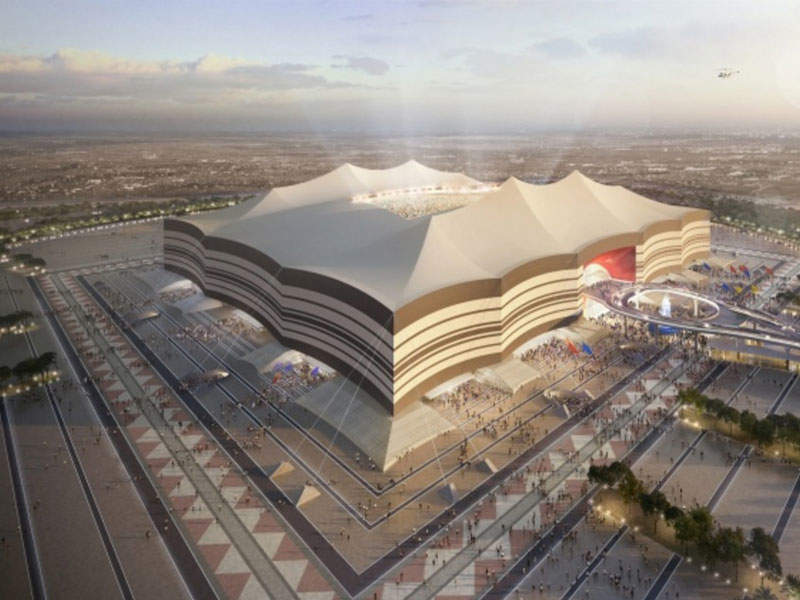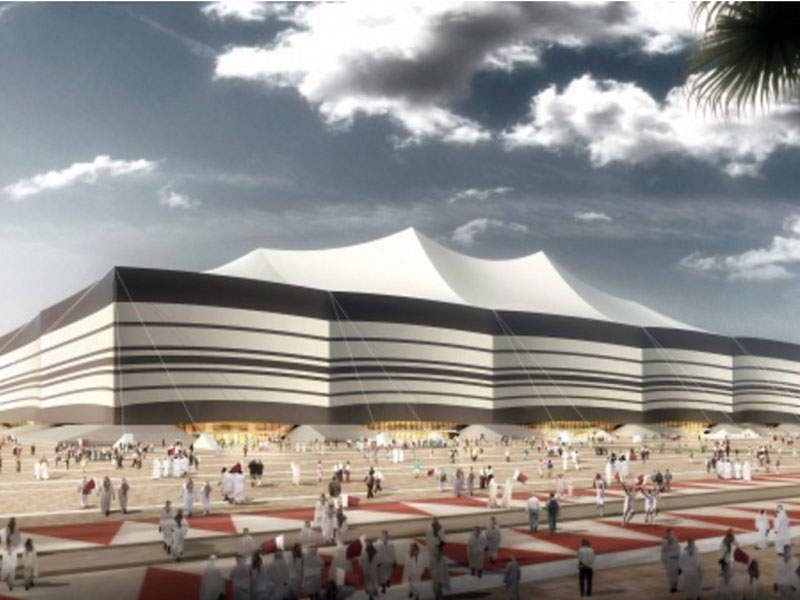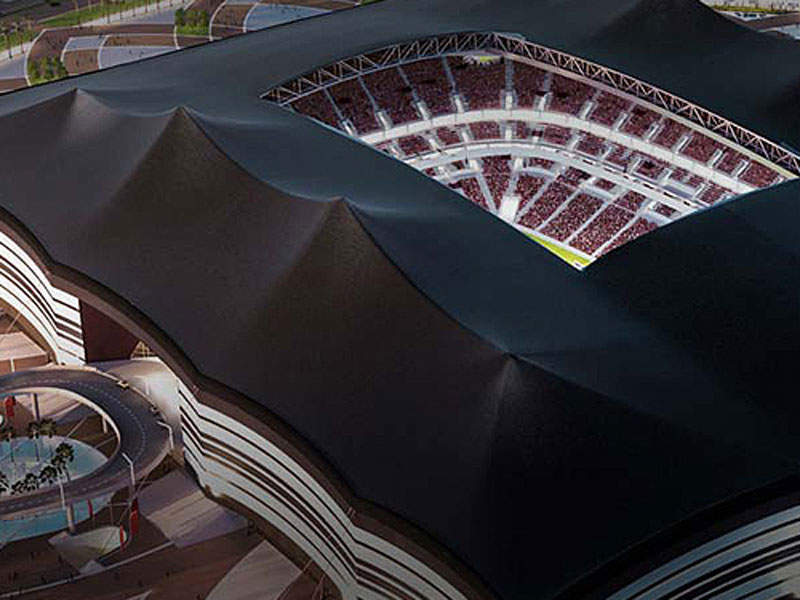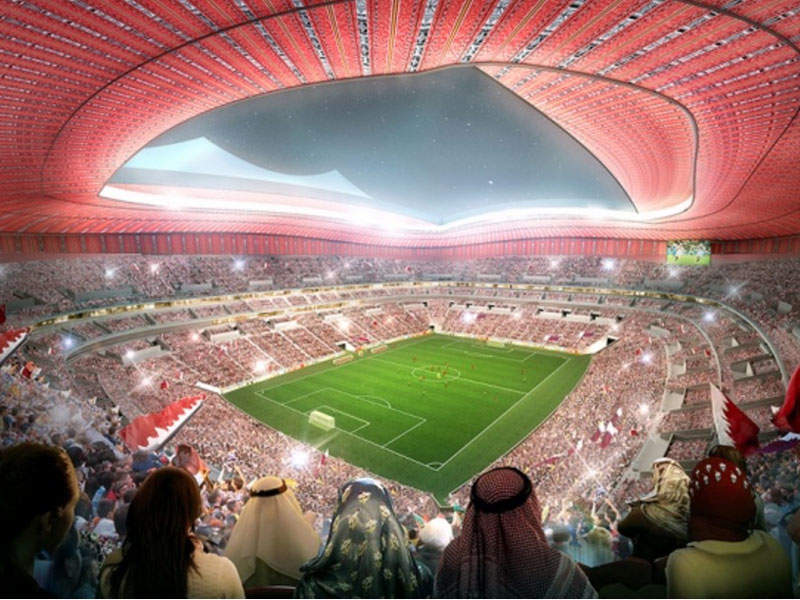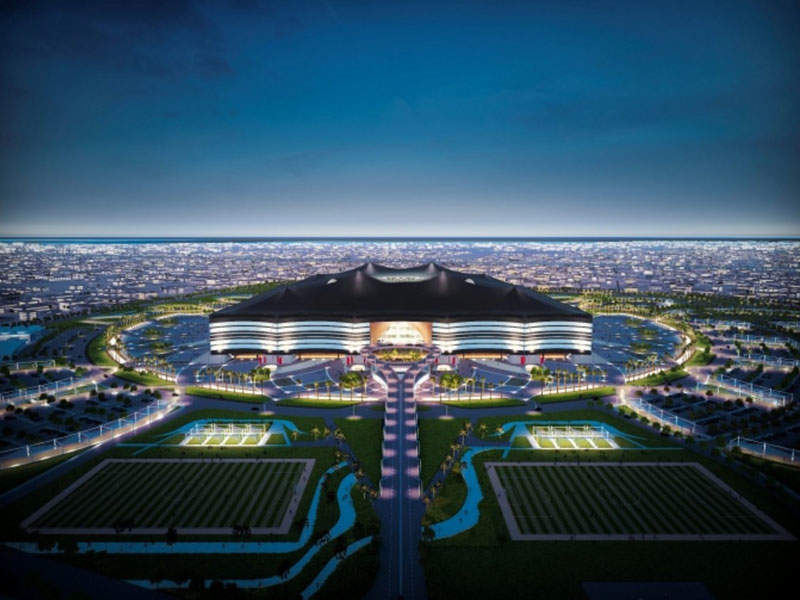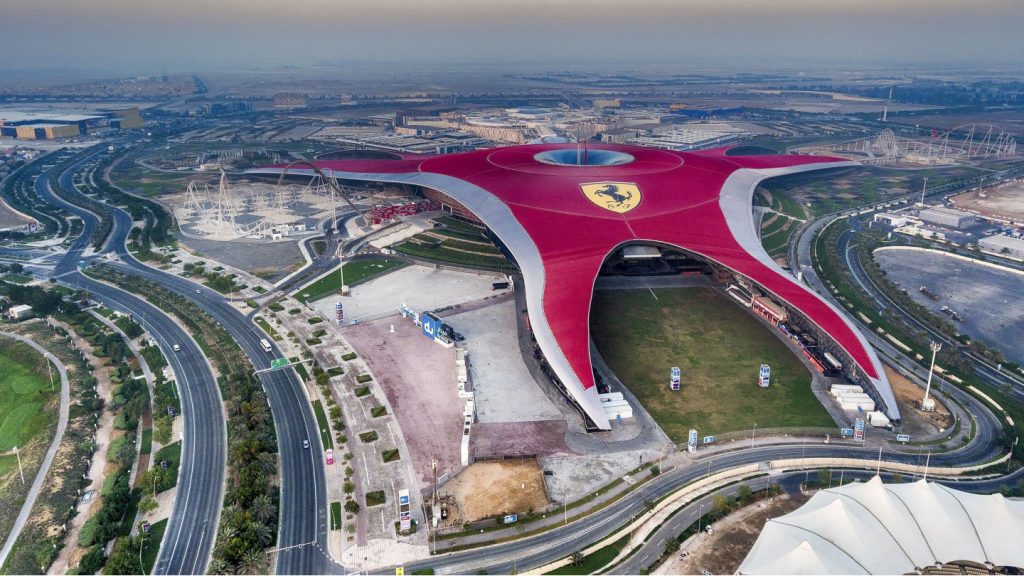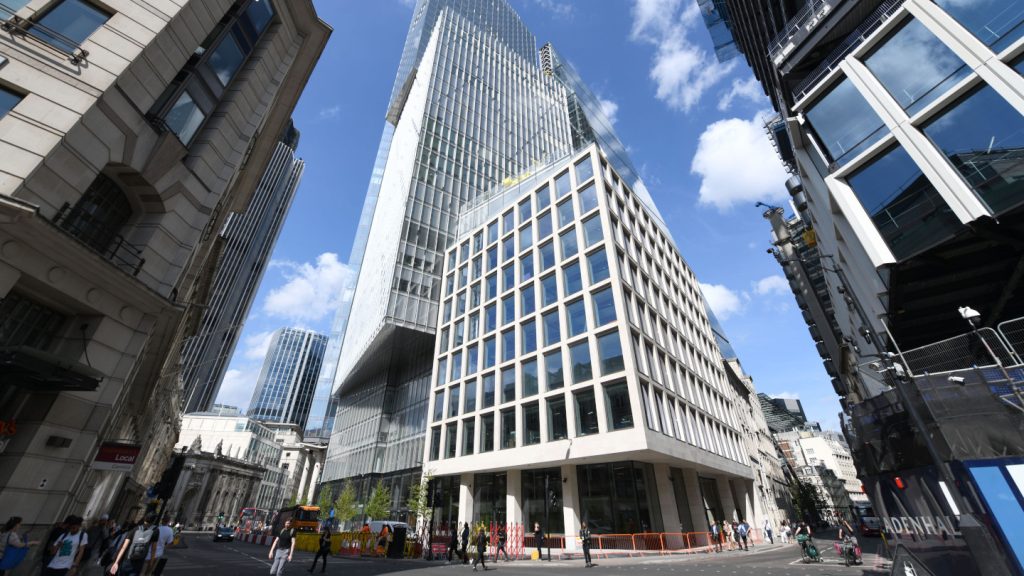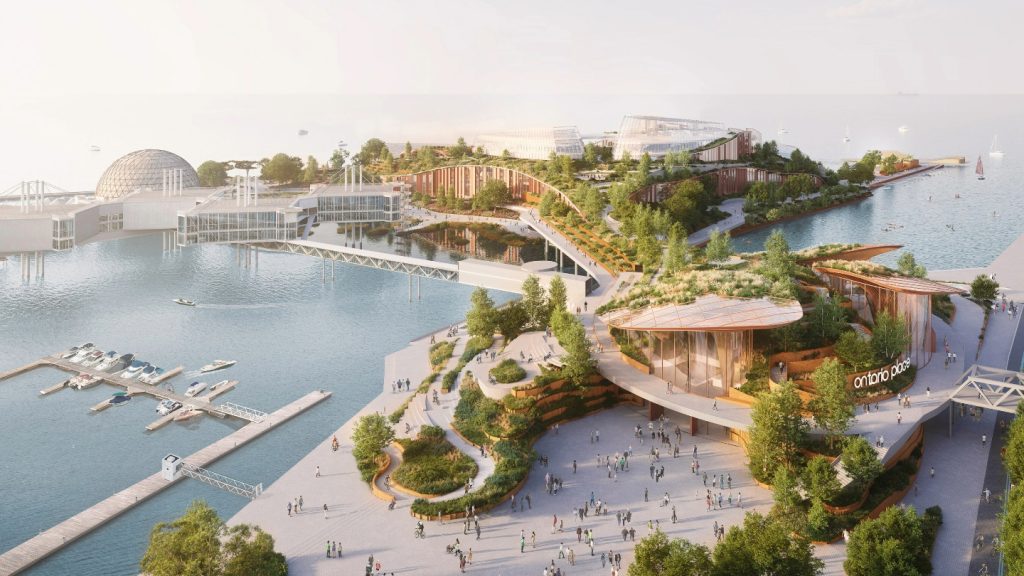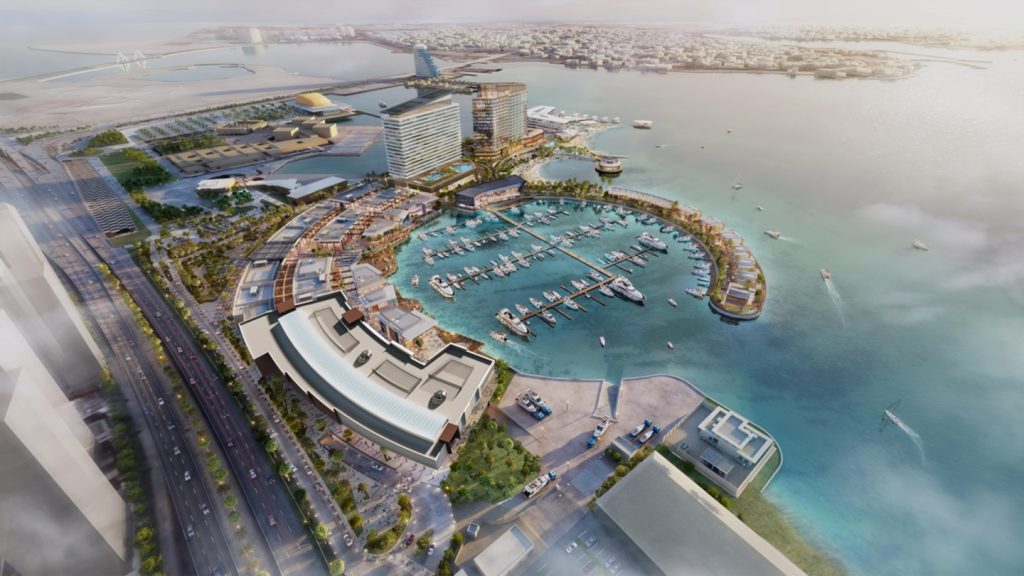Al Bayt stadium is being built in Al Khor, approximately 60km from Qatar’s capital Doha. The new 200,000m² stadium will host the 2022 FIFA World Cup semi-finals.
The €770m ($846.88m) project is one of the five stadiums being built by Qatar in preparation for the 2022 World Cup. The other stadiums include Al Wakrah stadium, Al Rayyan stadium, Khalifa International stadium and Qatar Foundation stadium.
Designed by Salini Impregilo, Al Bayt stadium will have a capacity of 60,000 people. Construction on the stadium began in September 2015 and is due for completion in the fourth quarter of 2018.
Al Bayt stadium design details
Al Bayt stadium’s giant tent-like façade structure is inspired by the traditional black and white Bedouin tents called Bayt Al Sha’ar, which were used by nomads in Qatar and the Gulf region.
The design features tent-like structures up to 37m-high that envelop the exterior of the stadium. The tents will be made of polytetrafluoroethylene (PTFE) and coloured in the traditional black, red and white colours. The tent structure will also provide optimum acoustics, by ensuring the noise and sounds in the stadium are held inside in a controlled manner.
A unique feature of the stadium is a retractable roof, which will be able to close in 20 minutes. It will provide optimal cooling conditions to enable football to be played throughout the year.
The stadium will feature three tiers of seating, with two of the tiers comprising a conventional pre-cast structure. The remaining one tier will be made of modular structural steel.
The stadium will have a modular design enabling its parts to be dismantled. After the World Cup, the top tier seating with a capacity of roughly 30,000 will be removed and sent to developing nations for the construction of new stadiums. The resulting smaller capacity stadium will be converted into a recreational venue for the local community of Al Khor.
The upper concourse of the stadium will also be transformed into a hotel. A shopping centre, retail outlets, restaurants and other attractions will be part of the facility.
Landscaped tracks for running and cycling will provide space for exercise to the local community. Horse riding, parks and play areas will also be included in the facility. Aspetar, one of the leading sports medicine facilities, will open a branch at the new facility to attract athletes from across the world.
Construction of Qatar’s new stadium
Foundation work and construction of the 12m lower-tier walls neared completion by November 2016. Other ongoing works include excavation, de-watering and installation of pipe connections. A total of 21 cranes, including one 280t mega crane, is currently working on site.
Structural work on one of the two-player tunnels has been completed with work going on the second. A number of the stadium building columns have been erected with the highest column reaching a height of 21m. The next building columns to be built are expected to reach a height of 37m.
The next phase of works will include placing the top slab and installation of other pre-cast elements.
Assembly and installation work on the roof structure system started in September 2017. The roof structure is being manufactured in Italy and will be transported directly to Qatar for installation.
The stadium’s façade structure is also being manufactured in Germany and will be transported in several shipments to Turkey. It will then be cut and transformed into an installation-ready structure and fitted at the stadium.
Sustainability features of Al Bayt stadium
The unique tent-like structure of the stadium will help in keeping the structure cool, while reducing the energy required for cooling. The tent will feature lightweight canopies extending towards the pitch and providing shade to fans and players. The canopies will supplement the stadium’s air cooling technologies thereby reducing power consumption.
In addition, numerous parks and green spaces extending from the stadium to the sea will be developed. Extensive taxi and bus facilities will also be developed to reduce the number of private vehicles on the road.
Contractors involved
A joint venture (JV) of Salini Impregilo Group, Galfar Al Misnad and Cimolai has been awarded the construction contract for the project.
KEO International Consultants is the construction supervisor for the project. Projacs was responsible for project management during the initial phases of the stadium development, while Dar Al-Handasah served as the design consultant.
Bin Omran Trading & Contracting and Al Sulaiteen Agricultural & Industrial Complex are responsible for landscaping.
Cremonesi Workshop is performing structural design work during the construction. Maffeis Engineering along with COX Architects, and Perkins + Will provided the design and specifications of the structural steel and membrane of the stadium.
Coastal Qatar was awarded the contract for manufacturing the seats for the stadium. The contract was awarded for three 2022 FIFA World Cup proposed host venues, with Al Wakrah and Al Rayyan being the other two stadiums.
Hightex won the contract for manufacturing the membrane structure of the roof and façade.
Other contractors and suppliers involved in the project include Peikko Group, EAE Group, ME Engineers and Schlaich Bergermann Partner.

